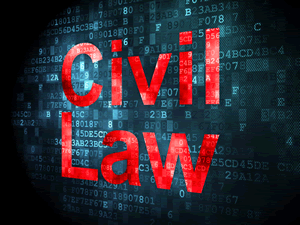Neighbor claims son damaged his car. What do I do?
Recently on our legal forum a user asked, “My child was playing in the front yard and threw his football through the car window of the neighbor’s car. I know morally my family has an obligation to repay and offer restitution to the family. I am wondering, however, legally what my neighbor can do to collect?”
Whether it’s you or a child, if you damage someone else’s property- intentionally or not- you or your child has the responsibility to provide restitution to your neighbor. If your child hit the car accidentally, it’s negligence. If the action was intentional, however, it can be classified as vandalism. Depending on the amount of the damage and the age of the child, vandalism can result in misdemeanor or a felony charges.
How can the parent collect compensation for damages caused by a minor?
Legally your neighbor generally has the right to seek compensation from you. For example, they might file a claim with their car insurance company, they might ask for the payment up front, they might sue you and attempt to recover payment in small claims court, or they might request that you file a claim against your homeowner’s policy. Let’s review these options in more detail.
- Filing a claim with their insurance company.
One option is for your neighbor to file a claim with their car insurance company. While the car insurance company might pay for the damages, if your neighbor has a deductible they might come after you to collect.
Your neighbor, however, may be hesitant to file a claim for minor damages, especially if they are concerned about their car insurance premiums rising.
- They might request a cash payment from you.
Most likely this issue can be resolved with a simply conversation with your neighbor. You take your son back to your neighbor’s house and have them apologize for the damage. Then, you offer to pay for the repairs.
Ask for an estimate and an itemized list of the damages. Then discuss the form of payment. If they provide you with an estimate that you believe is way above fair market value you might need to get a second estimate.
Legal experts also suggest you request a release of all claims document when you make payment. This document should state that your neighbor accepts the money as payment for all the damages related to the claim or accident.
- They might request that you file a claim with your home owner’s insurance company.
While your homeowner’s insurance policy may cover damage which occur away from your house, homeowner’s insurance is generally only used for catastrophic events. It is generally not a good idea to file insurance claims to pay for minor repairs. In fact, it’s likely your homeowner’s insurance policy has at least a $1,000 deductible, which might be as much as just paying for the damage outright.
Finally, filing homeowner’s claims can increase your premiums. With this in mind, you need to carefully consider whether or not filing a policy is really in your best interest.
- They might file a claim in small claims court.
Small claims court is often used to settle property damage disputes. Although it should not be necessary for your neighbor to take you to court if you have offered to pay for the damages, if you do not offer or you refuse to pay this is a legal option for them.
Assuming your neighbor has proof that it was your son who caused the damage, they probably will win their case. All they have to prove is that your son had a duty of care to act responsibly, he failed that duty, and his negligent actions caused them loss.
Furthermore, state laws often require parents to pay for damages caused by their child’s actions. For example, Hawaii’s parental liability laws require parents to pay without limits on the financial claims. Other states, however, set limits on the amount which must be paid for property damage.
Bottom Line:
You and your child need to take responsibility, apologize for the damage, and offer to make restitution. This is a great way to teach your child to be a law-abiding citizen.
Related Pages
Previous Question
My lawyer wants to take my case to court. What are my options?Next Question
Neighbors making my life a nightmare what are my rights?Latest Question
Guardianship for elder care
If you decide you should be the guardian of your parent and the court agrees, you will be responsible for a variety of decisions.
Category: Estate Law


